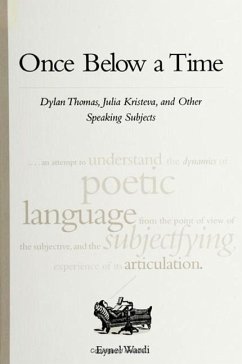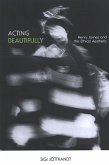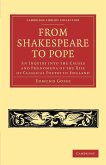Highly original and theoretically wide-ranging, this book offers new insights into the origins of poetry. Working with much of the significant primary and secondary literature in psychoanalysis, particularly the theories of Julia Kristeva, the book skillfully sketches out a psychoanalytically enhanced theory of poetics through close readings of the works of Dylan Thomas. Through an intense dialogue with pivotal poems, it offers a "subjectivist" theory of poetic language, one that focuses on the interrelation between meaning and subjectivity in the dynamics of the poetic text. In this scheme, the "genesis of the speaking subject" is held to be a reenactment of old and new fantasies of origins, the reality of which is inaccessible to us -- buried, as it were, "below time". Among these fantasies, the author also recognizes the psychoanalytic fantasy of origins that guides her own project.
Hinweis: Dieser Artikel kann nur an eine deutsche Lieferadresse ausgeliefert werden.
Hinweis: Dieser Artikel kann nur an eine deutsche Lieferadresse ausgeliefert werden.







